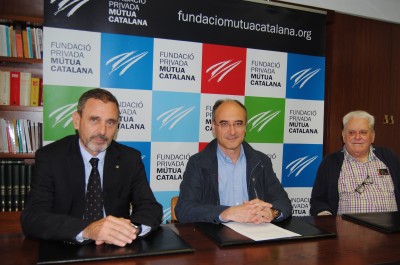
The ICAC has signed a new collaboration agreement with the foundation Fundació Privada Mútua Catalana (FPMC) to carry out the archaeological research project Aqua Augusta.
This project has the primary objective of locating and documenting, topographically and photographically, the longest Roman water construction that supplied the ancient city of Tarraco: the aqueduct of Gaià.
50 km long, the aqueduct is a master piece of engineering -the largest of its kind and time in Catalonia- as important as it is unknown. Archaeological remains are present in a total of eleven municipalities in the regions of Alt Camp and Tarragonès. Their identification is essential to protect the aqueduct as a patrimonial element and to a possible tourist and cultural exploitation.
The Gaià aqueduct was the longest Roman water construction that supplied the ancient city of Tarraco
The current condition of this hydraulic work is quite precarious since its route is imprecise in many places. The research project wants to solve this problem through the location of the visible sections and their georeferencing and photographic documentation.
This action will provide a detailed report that will help municipalities to establish a protected area that safeguards the Roman remains. Besides, areas in the best condition can be integrated as a monumental attraction and/or as a singular spot in tourist itineraries, once the remains are adapted and their value recognized.
Roman remainings of the Gaià aqueduct are present in eleven municipalities of the regions of Alt Camp and Tarragonès
Municipalities implied are Pont d’Armentera, Aiguamúrcia, Vila-rodona, Alió, Puigpelat, Nulles, Vallmoll, Secuita, Catllar, Pallaresos and Tarragona. Besides, it will include two unreleased Roman aqueducts that collected water from the river itself and drove it to villages located in the region of Baix Gaià. Therefore, municipalities of La Riera, Nou de Gaià and Altafulla will be also implied.
The project Aqua Augusta, led by the ICAC’s researcher Jordi López, is a two-year project. This is not the first time that the ICAC makes a joined project with the foundation Fundació Privada Mútua Catalana (FPMC), a social entity that has actively participated, from its origins, in the promotion and dissemination of the patrimonial heritage of Tarraco.





